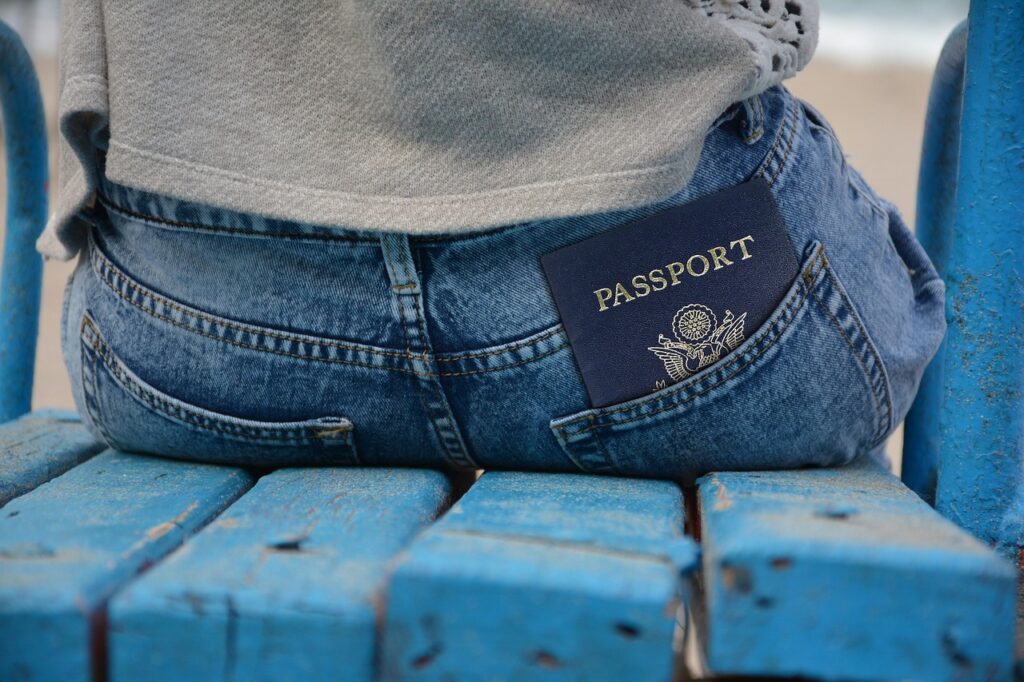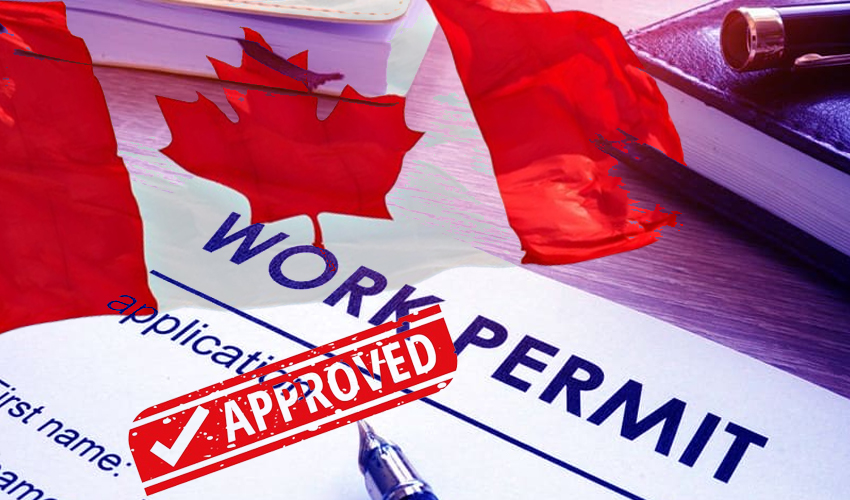Visa Guide
How Much Do I Need To Have In My Account To Get A Canadian Visa?
Looking to get a Canadian Visa? Find out how much money you need in your account to make your dream a reality. Read our informative post now!
If you’ve been dreaming of exploring the stunning landscapes, diverse culture, and friendly people of Canada, you may find yourself wondering, “How much do I need to have in my account to get a Canadian visa?” Well, lucky for you, we’re here to shed some light on this common question. Understanding the financial requirements for a Canadian visa can help ensure a smooth and successful application process, bringing you one step closer to your Canadian adventure. So, let’s delve into the details and discover just how much you’ll need in your account to make your Canadian visa dreams a reality.

This image is property of pixabay.com.
Categories of Canadian Visas
Canada offers various types of visas to individuals who wish to visit, study, work, or become permanent residents in the country. Understanding the different categories of Canadian visas is vital for anyone planning to travel to Canada. The main categories include Visitor Visas, Study Permits, Work Permits, and Permanent Resident Visas. Each category has its own requirements and benefits, so it’s essential to explore the options carefully to determine the most suitable visa for your situation.
Visitor Visa
A Visitor Visa is designed for individuals who plan to stay in Canada temporarily. Within this category, there are two types: Temporary Resident Visa (TRV) and Super Visa.
Temporary Resident Visa (TRV)
A Temporary Resident Visa (TRV) is commonly obtained for short-term stays, such as tourism, visiting family or friends, or attending conferences or events. To apply for a TRV, you will need to meet certain requirements, including providing proof of funds to cover your expenses during your stay, having a valid passport, and demonstrating that you will leave Canada at the end of your authorized period.
Super Visa
The Super Visa is specifically designed for parents and grandparents of Canadian citizens or permanent residents. It allows individuals to visit their family in Canada for an extended period, usually up to two years, without the need for visa extensions. To be eligible for a Super Visa, applicants must provide proof of financial support and meet the minimum necessary income requirements to demonstrate that they can support themselves during their stay in Canada.
⚠️ Beware of Jobs and VISA Scams – Read our guides carefully and APPLY directly using our links and buttons. Application is free! Don’t pay anyone claiming to be a travel or Job Agent!
Study Permit
If you wish to study in Canada, you will need to obtain a Study Permit. This permit grants you permission to study at designated learning institutions (DLIs) across the country. There are several factors to consider when applying for a Study Permit, including tuition fees and living costs, as well as proof of funds and financial requirements for dependents.
Tuition fees and living costs
International students are required to pay tuition fees at the Canadian institution where they plan to study. Tuition fees vary depending on the program and institution, so it is essential to research and consider the costs before applying for a Study Permit. Additionally, it is crucial to budget for living expenses, such as accommodation, transportation, food, and healthcare, as these costs can add up during your stay in Canada.
Proof of funds
To obtain a Study Permit, you must provide proof that you have sufficient funds to support yourself financially during your studies in Canada. The minimum amount required may vary depending on the duration of your program and the location of your chosen institution. Acceptable proof of funds can include bank statements, scholarship or sponsorship letters, or a combination of financial resources to meet the requirement set by the Canadian government.
Financial requirements for dependents
If you plan to bring your family members with you to Canada while studying, you will need to meet the financial requirements for your dependents as well. This includes demonstrating that you have enough funds to support your spouse or common-law partner, as well as any dependent children. This financial requirement helps ensure that you can adequately provide for your family’s needs while studying in Canada.
Work Permit
A Work Permit allows individuals to work in Canada temporarily. There are different types of work permits, including employer-specific work permits, open work permits, and working holiday visas.
Employer-specific work permits
An employer-specific work permit is issued to individuals who have a specific job offer from a Canadian employer. To obtain this type of work permit, the employer must first obtain a Labour Market Impact Assessment (LMIA) to demonstrate that there is a need for a foreign worker to fill the position. If approved, the foreign worker can then apply for a work permit, which will specify the employer, the duration of the employment, and any other relevant conditions.
Open work permits
An open work permit allows individuals to work for any employer in Canada, except for those who are not allowed to hire foreign workers. This type of work permit is ideal for individuals who do not have a specific job offer but wish to explore various employment opportunities in the country.
Proof of funds for working holiday visa
If you are applying for a working holiday visa, in addition to meeting the specific requirements of the program, such as age limits and country eligibility, you will also need to provide proof of funds. The amount of funds required may vary depending on factors such as the duration of your stay and the cost of living in the Canadian region where you plan to reside. It is essential to have sufficient funds to cover your expenses until you secure employment in Canada.

This image is property of pixabay.com.
Permanent Resident Visa
A Permanent Resident Visa allows individuals to live and work in Canada permanently. There are different pathways to obtain permanent residency, such as through the Express Entry Program, Provincial Nominee Program (PNP), Family Sponsorship, Caregivers Program, or Start-up Visa Program.
Express Entry Program
The Express Entry Program is a system used to manage applications for permanent residency for economic immigrants. It includes three main immigration programs: the Federal Skilled Worker Program, the Federal Skilled Trades Program, and the Canadian Experience Class. Under the Express Entry Program, individuals are assessed based on factors such as age, education, work experience, language proficiency, and adaptability. Those who meet the requirements may receive an invitation to apply for permanent residency.
Provincial Nominee Program (PNP)
The Provincial Nominee Program (PNP) allows Canadian provinces and territories to nominate individuals who have the skills and experience required to contribute to the local economy. Each province and territory has its own streams and criteria, which may target specific sectors or occupations in-demand within their region. If nominated by a province or territory, individuals can apply for permanent residency through the PNP.
Family Sponsorship
Canadian citizens and permanent residents have the opportunity to sponsor their family members for permanent residency in Canada. This includes sponsoring their spouse or common-law partner, dependent children, parents, and grandparents. The sponsor must meet specific income and sponsorship requirements to demonstrate their ability to support the family member financially.
Caregivers Program
The Caregivers Program allows individuals with work experience in caregiving positions to apply for permanent residency in Canada. This program is designed for individuals who have provided care for children, the elderly, or people with disabilities in a Canadian home. To be eligible, applicants must meet specific requirements, including work experience, language proficiency, and education.
Start-up Visa Program
The Start-up Visa Program targets innovative entrepreneurs who have the potential to build successful businesses in Canada. To be eligible, applicants must have a qualifying business idea and secure a commitment from a designated organization, such as a venture capital fund or angel investor group. In addition to meeting entrepreneurial criteria, applicants must also provide proof of funds to support their settlement in Canada and their business establishment.
Visitor Visa – Temporary Resident Visa (TRV)
When applying for a Temporary Resident Visa (TRV) within the Visitor Visa category, it is important to consider the minimum funds required to cover your expenses during your stay in Canada.
Minimum funds required for a TRV
To meet the financial requirements for a TRV, you must demonstrate that you have enough money to pay for your accommodation, transportation, and living expenses while in Canada. The specific amount may vary depending on factors such as the duration of your stay and the region in Canada you plan to visit. It is crucial to provide accurate and up-to-date information regarding your financial situation to ensure the success of your TRV application.
Additional considerations
In addition to the financial requirements, there are other factors to consider when applying for a TRV. These include having a valid passport, providing a detailed travel itinerary, and demonstrating strong ties to your home country, such as employment, family, or property ownership, to show that you have a genuine intention to return after your visit to Canada.

This image is property of pixabay.com.
Visitor Visa – Super Visa
The Super Visa is an attractive option for parents and grandparents of Canadian citizens or permanent residents who wish to visit their family in Canada for an extended period.
Eligibility criteria
To be eligible for a Super Visa, applicants must meet certain criteria. These include being the parent or grandparent of a Canadian citizen or permanent resident, providing a letter of invitation from their child or grandchild in Canada, and purchasing private medical insurance coverage for at least one year. It is important to note that the Super Visa is valid for up to 10 years, and visitors can stay in Canada for up to two years on each entry.
Minimum necessary income
To support the application for a Super Visa, the child or grandchild in Canada must meet the minimum necessary income requirements. The income threshold is determined based on the size of the family unit in Canada and includes the income of the sponsor and their spouse or common-law partner. The purpose of this requirement is to ensure that the sponsor can financially support their parents or grandparents during their stay in Canada.
Proof of funds for Super Visa
In addition to the income requirements, proof of funds must also be provided when applying for a Super Visa. The funds should demonstrate that the applicants have sufficient resources to support themselves without relying on public funds while in Canada. Adequate proof of funds can include bank statements, fixed deposit certificates, or other financial documents that demonstrate a stable financial situation.
Study Permit – Tuition fees and living costs
When considering the cost of studying in Canada, it is important to take into account both tuition fees and living expenses.
Tuition fees for international students
Tuition fees for international students in Canada can vary significantly depending on the program and institution. It is essential to research and compare the tuition fees of different schools to find the best fit for your academic and financial needs. While international student fees are generally higher than domestic student fees, Canadian institutions offer high-quality education and a diverse range of programs that make it a worthwhile investment.
Living expenses for international students
Living expenses can vary depending on the city or region where you choose to study in Canada. The cost of accommodation, transportation, food, and healthcare are important factors to consider when budgeting for your study abroad experience. It is recommended to research the cost of living in your chosen city and develop a realistic budget to ensure you can comfortably cover your expenses throughout your study period.
Study Permit – Proof of funds
To obtain a Study Permit in Canada, you must demonstrate that you have enough funds to support yourself financially throughout your studies.
Minimum funds required for a Study Permit
The specific minimum funds required for a Study Permit vary depending on factors such as the duration of your program and the location of your chosen institution. It is important to refer to the official guidelines provided by the Canadian government to determine the exact amount required. Generally, international students need to show proof of funds to cover tuition fees for the first year of study, as well as living expenses for themselves and any accompanying family members.
Acceptable proof of funds
Acceptable proof of funds for a Study Permit application can include bank statements, scholarship or sponsorship letters, or a combination of financial resources. The Canadian government requires that the funds be readily available and accessible to you during your stay. It is crucial to ensure that the provided proof of funds meets the requirements outlined by the Canadian government to avoid any delays or rejections in the application process.
Permanent Resident Visa – Start-up Visa Program
The Start-up Visa Program offers a pathway to permanent residency for innovative entrepreneurs who have the potential to contribute to the Canadian economy.
Proof of funds for Start-up Visa Program
To qualify for the Start-up Visa Program, applicants must have sufficient funds to settle in Canada and establish their proposed business. The specific amount of funds required depends on the number of dependents included in the application. It is important to provide accurate and up-to-date financial information to demonstrate that you meet the financial requirements of the program. Adequate proof of funds can include bank statements, investment records, or letters of commitment from designated organizations providing financial support for your start-up venture.
In conclusion, understanding the various categories of Canadian visas is crucial when planning to visit, study, work, or become a permanent resident in Canada. Each category has its own set of requirements, so it is important to research and prepare accordingly. Whether you are applying for a Visitor Visa, Study Permit, Work Permit, or Permanent Resident Visa, thorough preparation and adherence to the outlined guidelines will significantly enhance your chances of success. Remember, seeking professional advice and assistance can also provide valuable support throughout the application process.






